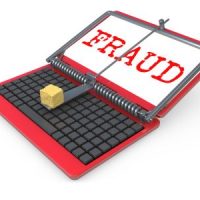Four Things To Know About The Computer Fraud And Abuse Act

Passed in 1986, the Computer Fraud and Abuse Act (CFAA) is a federal law enacted to address computer-related crimes. Some notable examples include hacking, computer fraud, and the unauthorized access/use of computer systems. There are both criminal and civil provisions. Businesses and organizations may have a CFAA claim to compensation for damages caused by unlawful access. Here, our Florida Computer Fraud and Abuse Act attorney highlights four of the most important things that you should know about the law.
- The CFAA Helps to Protect Trade Secrets and Other Confidential Information
The Computer Fraud and Abuse Act plays a crucial role for businesses and organizations looking to safeguard trade secrets and other sensitive information. By criminalizing unauthorized access to protected computer systems and creating strong civil legal protections for valuable data, the CFAA serves as a strong deterrent for employees who might otherwise consider engaging in corporate espionage or other malicious activities.
- Employers Can Pursue a Civil Claim for Damages Caused by Unauthorized Access
In addition to criminal penalties, the CFAA allows employers to seek civil remedies for damages incurred due to unauthorized access to their computer systems. This means that if an employee violates the Act, employers can file a civil lawsuit to recover financial losses, lost profits, or other damages resulting from the employee’s actions. By pursuing civil claims, employers can hold individuals accountable and potentially recover some of the costs incurred from unauthorized access. A CFAA claim could be filed against non-employee parties as well.
- Employers Must Implement Proper Measures to Safeguard Information
To comply with the CFAA and protect their valuable data, employers must establish and maintain robust cybersecurity measures. Among other things, this may include the implementation of access controls, monitoring employee activity, and providing regular cybersecurity training. By taking these steps, employers not only fulfill their legal obligations under the Act but also minimize the risk of security breaches that can result in significant financial and reputational damages.
- The Supreme Court Interpreted “Unauthorized Access” Somewhat Narrowly
In a landmark ruling, the Supreme Court limited the scope of what constitutes “unauthorized access” under the CFAA (Van Buren v. United States). The Court held that the Act does not cover employees who are authorized to access certain information but then misuse that access for nefarious purposes. Instead, the Act targets those who access computer systems or data without any authorization at all or who exceed their authorized access. Employers should be aware of this interpretation to understand the limitations of the CFAA and to address potential misuse of information through other legal avenues.
Get Help from a Computer Fraud and Abuse Act Attorney in South Florida
At Perkins Law – Brand Protection, our Florida Computer Fraud and Abuse Act lawyers are standing by, ready to protect your rights and your interests every step of the way. To set up your no obligation initial consultation, please do not hesitate to contact us online today. Our law firm handles Computer Fraud and Abuse Act claims in Broward County, Miami-Dade County, Palm Beach County, and beyond.
Source:
congress.gov/bill/99th-congress/house-bill/4718
